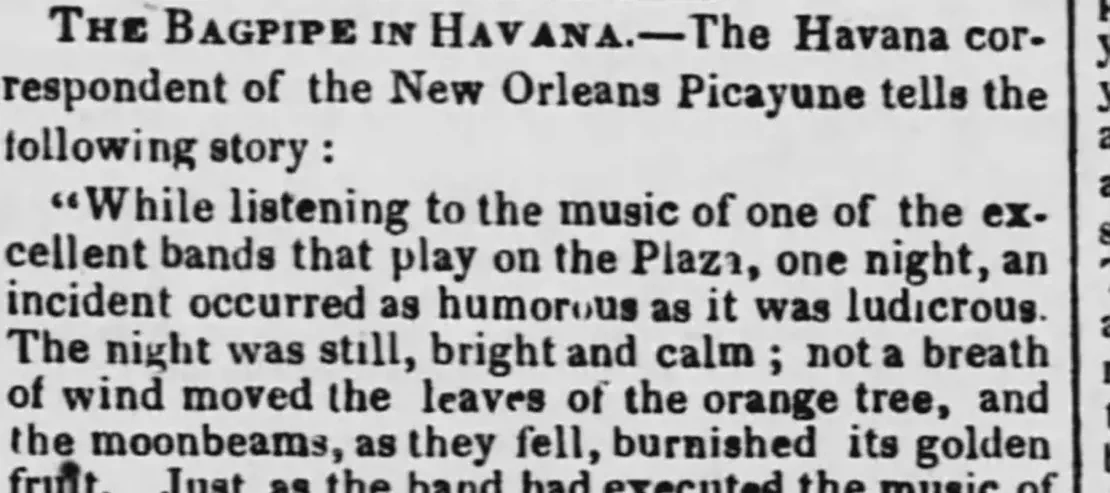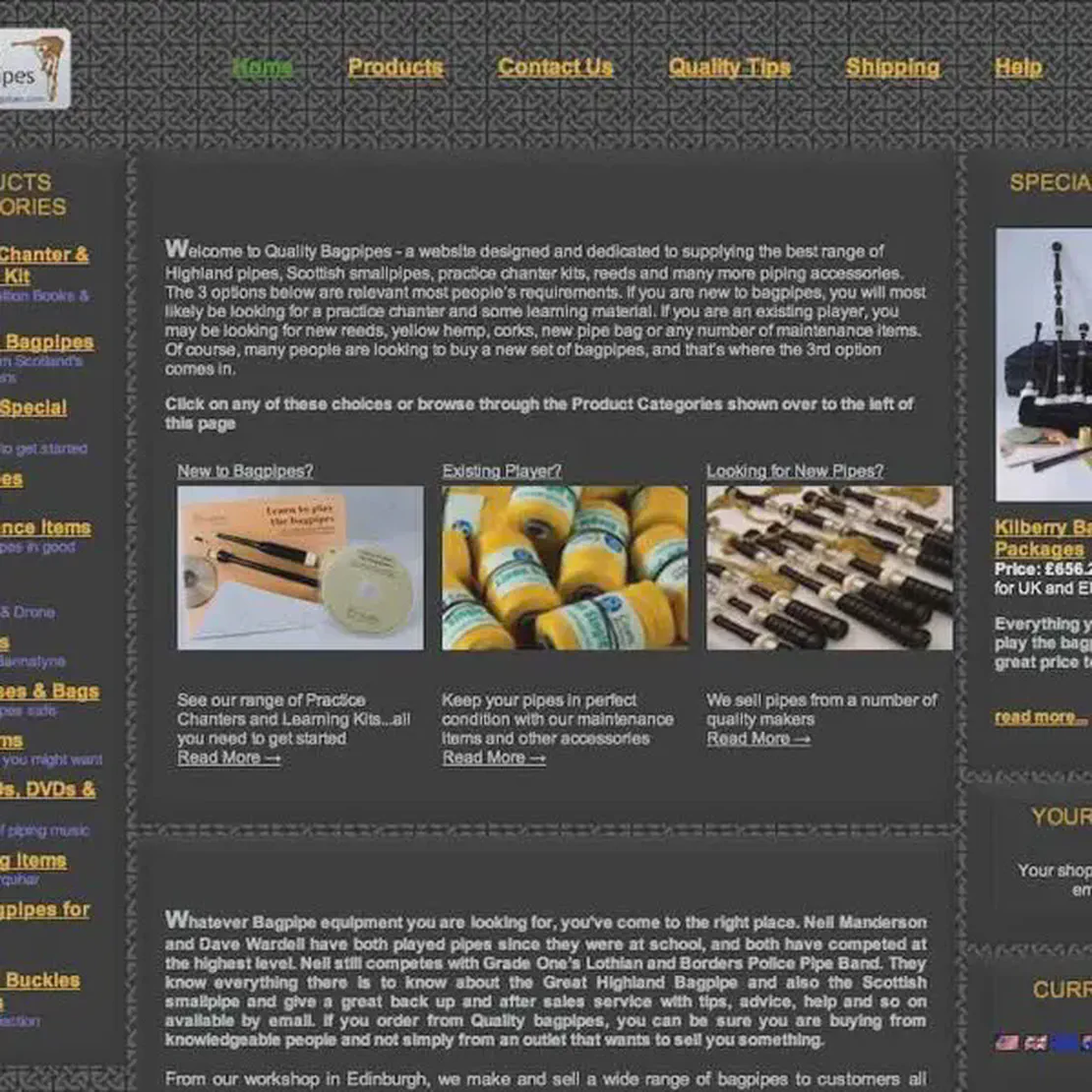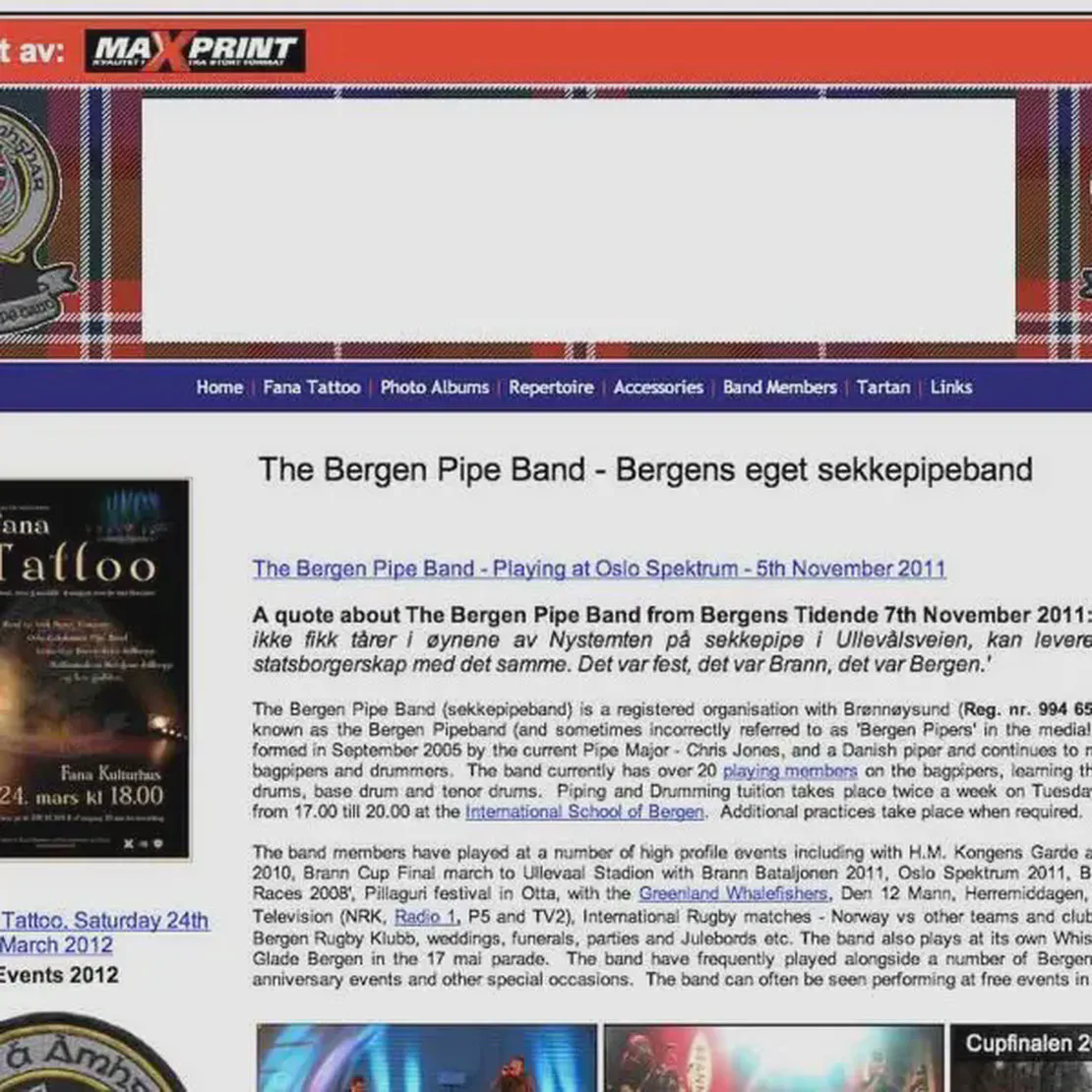- Articles
- June 8, 2022

Bagpiper Article from The Evening Post, New York, NY Reprinted this article on 06 Jul 1843, which was originally printed in the Times Picayune in New Orleans on June 27, 1843 - this was considered viral back in the day !
Times Picayune - New Orleans - June 27, 1843
Bagpipe In Havana
The Havana correspondent of the New Orleans Picayune tells the following story:
“While listening to the music of one of the excellent bands that play on the Plaza, one night, an incident occurred as humorous as it was ludicrous.
The night was still, bright and calm; not a breath of wind moved the leaves of the orange tree, and the moonbeams, as they fell, burnished its golden fruit.
Just as the band had executed the music of one of the grand operas, and for a moment had ceased to play, a wild, and, to the natives, unearthly kind of music was heard in the distance, and nearing the square.
The Habaneros uttered a thousand exclamations of surprise, and seemed to think it was the spirit of murdered music rising from the sea.
We at once recognized it as the erratic Scott pibroch proceeding from the national instrument, a Highland bagpipes.
We were not mistaken, for shortly a ‘bonnie Scot’ came in view, blowing for the bare life,
“Willie waur’s them a’, mon.”
When the first affright was over, a commissary summoned sufficient courage to arrest him.
“Hoot awa’, mon, said Sandy, “are ye daft ?”*
“Ye lees’en wi’ a’ the attention I’ the warld to the fooreign ootlandish airs o’ that land; an’ yet ye ha nae oonderstan’in to appreicate a guid stirrin’ Scotch tune on the Highland bagpipes.
O’ ma conscience, but ye mauu be a vera uncevelized set o’ bodies.”
The Scotch minstrel was taken off to prison, but we learned that he was let off the next morning, on the case being properly represented to the authorities.
He was a sailor on board one of the British ships in port, who had learned to play the bagpipes, and always carried the instrument with him.
Having heard the band playing, he thought he would get up an opposition, or as he said himself, he thought he the people had a taste for good music, but he found he was:
“maist waefully mis ta’en”


